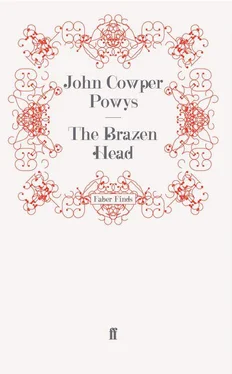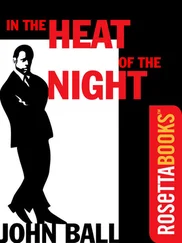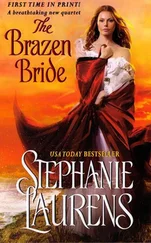Friar Bacon now went back happily and quietly to his chair and table and to that piece of foolscap parchment half-covered with his quite legible but by no means very elegant handwriting. But he soon had to put down his pen again, for he was interrupted by the familiar sound, not of any Master Miles returning from London, but of the heavy steps of lay-brother Tuck, ascending the narrow turret-stairs to his low-roofed chamber, bringing him his supper.
It was a beautifully tranquil and by no means a very cold twilight that had by this time diffused itself over all the western provinces of our Island, and pleasant pine-wood scents mingled with the nutty waftures from the well-spiced apple-pasty that Brother Tuck, the moment he entered, carefully set down in the middle of the empty square space on the table from which Roger Bacon had hurriedly cleared all his papers.
In the depths of his pluralistic soul the Friar was now repeating over and over to himself the name “Ghosta”, but he said, “Sit down, Brother,” in the particular tone of a person who murmurs almost mechanically, “And now we come back to real life.”
And when Brother Tuck had jerked into position a chair of the same shape as the one occupied by the Friar and containing a cushion of identically the same colour and size, the latter added the words: “And you might, if you don’t mind, get the bottle and glasses”; a suggestion that was taken with the quickest alacrity. From a small shelf in an open recess near the door was extracted a beautifully heavy and almost opaque cut-glass container half-full of the reddest Burgundian wine from which, when it stood between them on the table, the Brother filled both their glasses.
Then followed, but with the same matter-of-fact, mechanical inevitability, a very curious gesture, traditional in Bumset Priory — a gesture that Raymond de Laon was wont to declare he had heard from none other than the Papal Legate to this country who subsequently became Clement IV, was prehistoric and pre-Christian, and went back to the days of Homer and Hesiod, when, before touching any wine, you had to sprinkle drops of it on the ground and on the air. What in fact both the men did now was to dip their longest finger into their glass and lightly flip a few drops of the wine they were about to drink towards each other.
“Here’s news for you, my friend and God’s friend,” Brother Tuck began. “The Mother Superior next door, you know, has now got a really extraordinary Jewish girl to help the old nun who cooks for them. That poor old bitch — if you’ll excuse me, sir — has never had time enough to cook properly; to cook, I mean, things that she herself enjoys. She spends half her time carrying dishes around to sick nuns. But now, with this new girl there, things are going, Prior Bog assures me, so marvellously well that Sister Mandrake, the nun who cooks for them, is happy again, and poor old Serga Kathalorum has found time to look round her a bit and enjoy life a little — found time to feel that being a Mother Superior isn’t quite the worst fate that could have befallen a god-fearing elderly respectable lady. Pardon me, Master Friar, but has any new devil entered your mind, like that one that made you say, ‘Time is Past’ over and over, just as if it were ‘et cum Spiritum tuum’?”
Brother Tuck emptied his glass, holding it to his lips in order that its last drops — drops that were no doubt called “the dregs” in countries where certain accumulations of strongly-smelling residue could always be drained from the bottom of wine-glasses — and then, having allowed his uplifted eye-balls — and while he did this his expression resembled that of a frog, with its chin on a lily-leaf, searching the empyrean for thunder — to scour the discoloured interior of the glass he was holding, he repeated “cum Spiritum tuum” in a dying fall of unction that resolved itself, ere it passed wholly away, into a diffused question.
Brother Tuck was still gazing with an uneasy relaxed interrogatory stare into the abstracted eyes before him, and across the empty glass and the full glass, when to his startled and rather shocked surprise he saw the Friar rise slowly to his feet.
“Please answer me, Brother Tuck, my old friend,” said the risen man gravely. “No! Stay as you are. Don’t get up. Here, drink my glass. I can have another later. But it’s necessary for me to ask you rather an important question. What’s this new girl’s name? I mean this one you’re talking about, who is such a help to Serga Kathalorum at the Convent, and to the old nun — Sister Mandrake they call her, don’t they? — who does their cooking?
“No, don’t get up, old friend. Stay where you are. It’s for the person who is asking the questions to stand. But it’s important to me and important purely for myself. Yes, you must understand that , Brother Tuck. You mustn’t think I am asking you for any reason except a special peculiar, and quite definite one of my own. But to me this matter is of extreme importance; for it has to do with the particular thing I’m working on just now, namely — though I don’t want to bother you, old friend, with these peculiarly difficult matters — the question as to how far at any definite point in the passing of time — you can see roughly, old friend, can’t you, what I’m talking about? — our natural human apparatus for looking ahead can be used for purposes of prediction and how far it must hopelessly collapse; and why I asked you about this person, Tuck, my friend, was because—”
At this moment not only did a sudden gust of wind from the north cause the wooden framework of the small window to shake, but an agitated yellowhammer, with wings and feathers ruffled and with nerves and brain confused and befuddled to such a degree by an airy panic emanating from a whirling flock of frightened starlings, that everything in the world except that little, low-roofed philosophic chamber seemed all beak and claws, burst into the room, and aware of Brother Tuck’s square shoulders stooping over two glasses and Friar Bacon’s bottle-neck shoulders erect over nothing, flung itself in a wild panic against the three walls in front of it, and fell dead on the floor before reverting to the fourth.
Both men went to pick up the bird, and there was something almost like a boyish scuffle between them as to which should reach it first. In the event, attained in two seconds, it was Friar Bacon who got the motionless creature into his hands and smoothed down its feathers and let its head fall limp across his thumb.
“Well! tell me now, Tuck, old friend; has this new girl at the convent got a name that suggests death or anything to do with death?” As he spoke the Friar lifted the bird’s head from the back of his thumb just about an eighth of an inch and then let it sink down again. “Anything to do with Death, old friend, that’s the question. And when you’ve answered I’ll tell you exactly why I put this question to you. But sit down again, and I’ll sit down too. It’s queer, isn’t it, how much more tiring it is to stand than to walk?”
Both the men were silent, looking at each other across the table, the Friar mechanically caressing the dead bird on his lap and the Lay-Brother mechanically running his finger round the edge of the wine-glass that was nearest to him. If only one among Friar Bacon’s unrealized inventions had been present then that had the power, the moment you touched a particular knob, of uttering in a strong firm voice the thoughts of each person in turn, towards whose cranium, whether hairy or bald, the spear-point of its machinery had been directed, what a moment this would have been for a perfect proof as to how the most unorthodox, improper, shameless, outrageous thoughts flit through the heads of upright, honest, and thoroughly good men busy with entirely blameless activities!
Читать дальше











